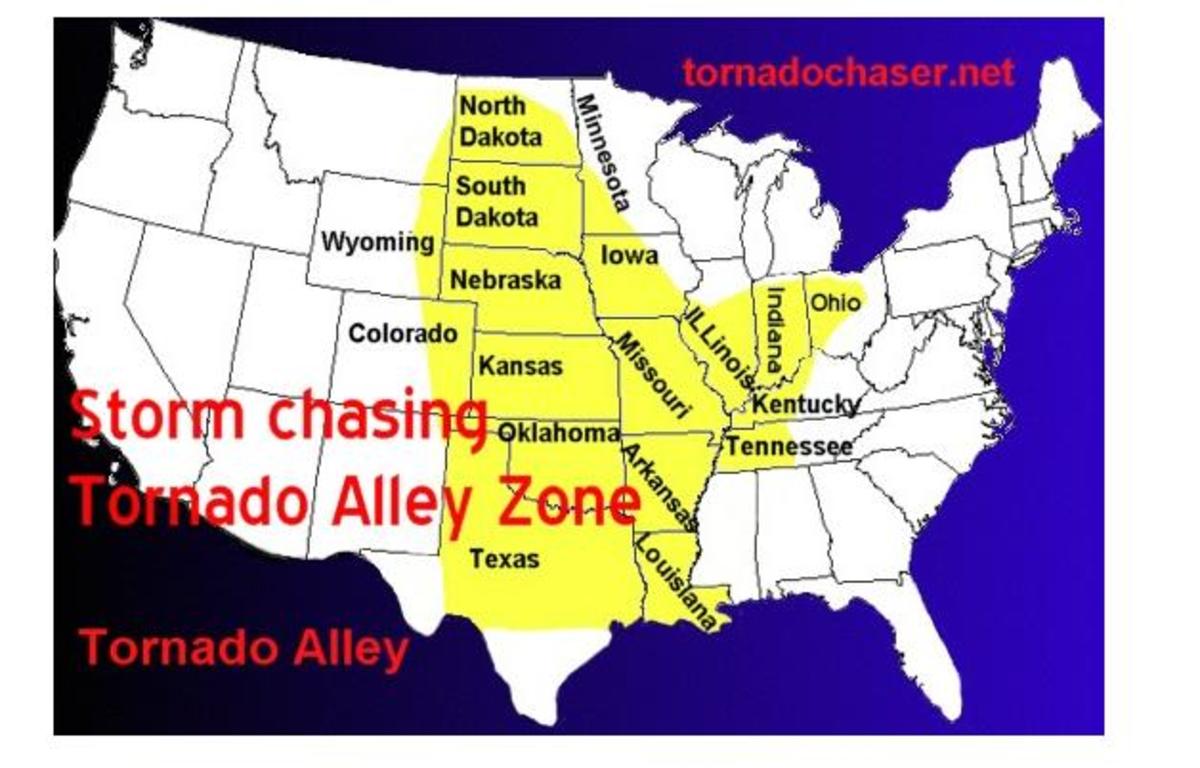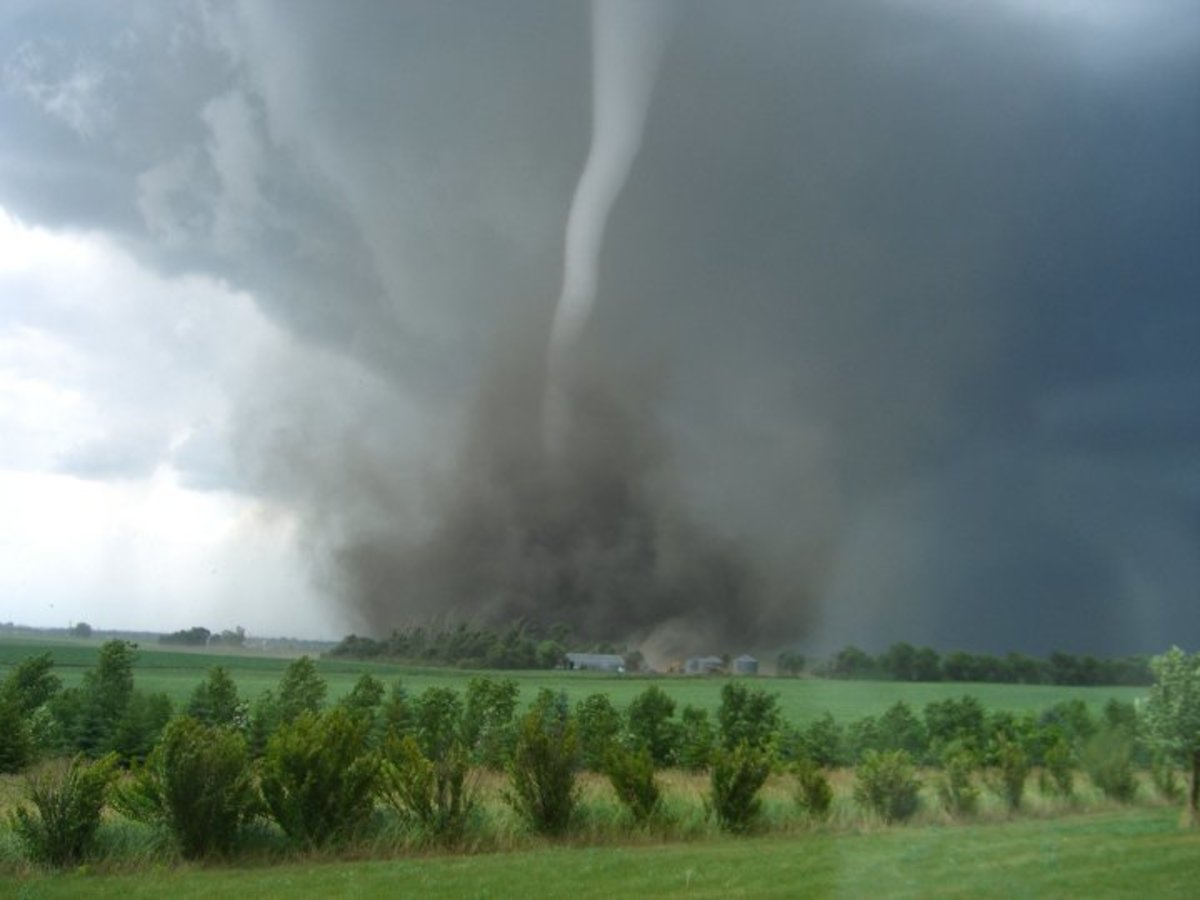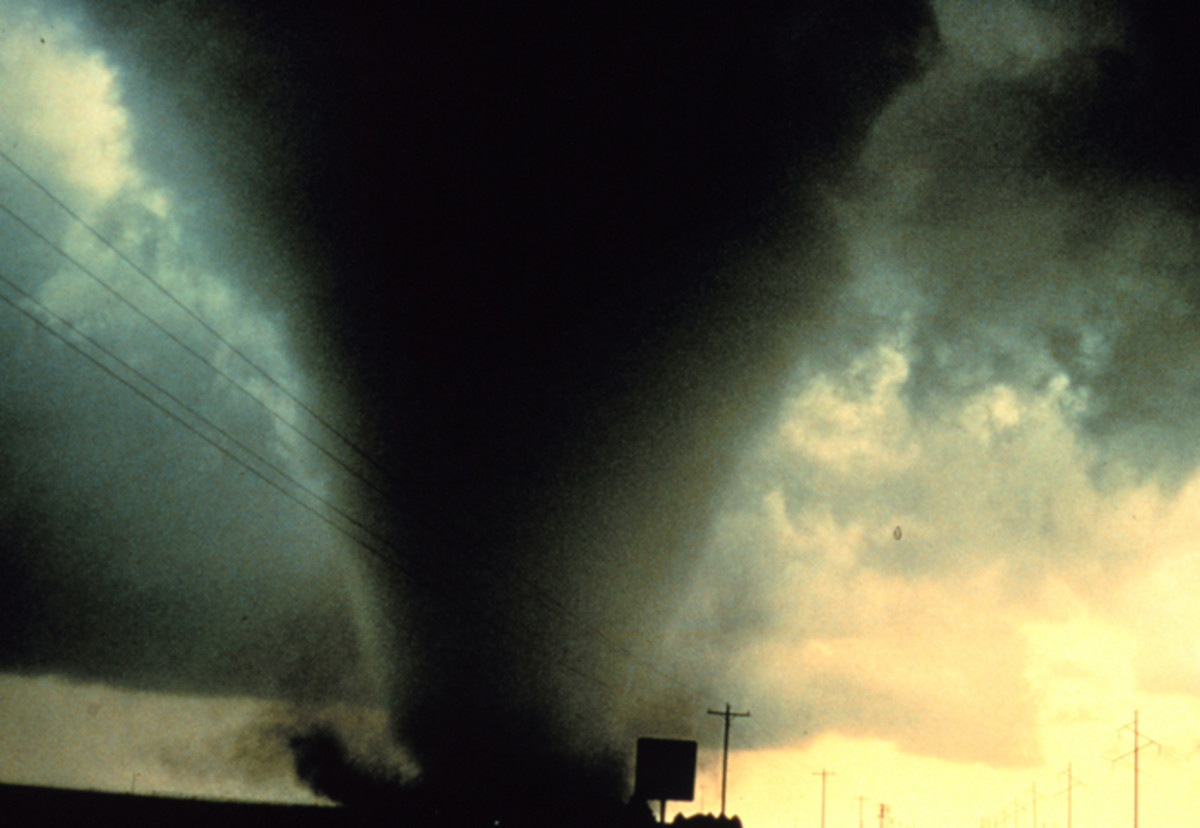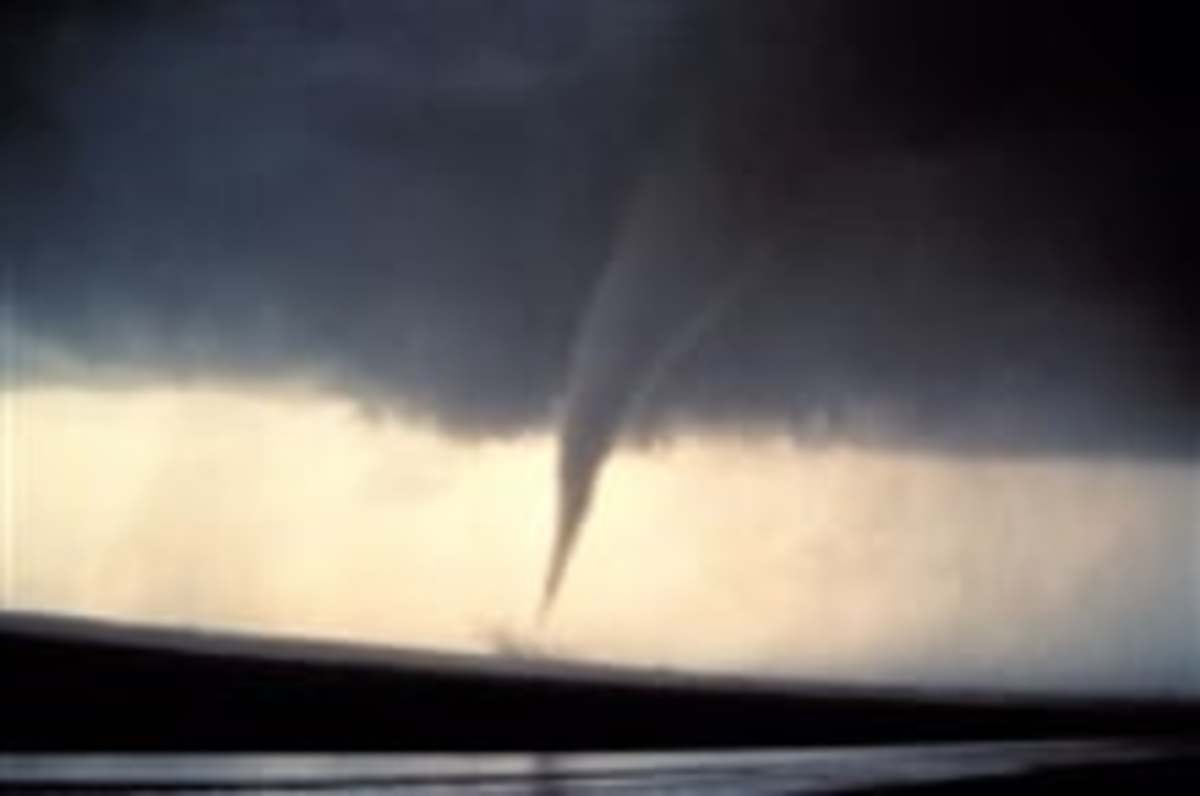Dixie Tornado Alley: Just Another Stormy Day in Mississippi
A frightening sight!
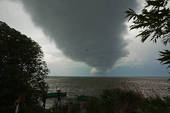
Mississippi and Stormy Weather
I live in Jackson, the relatively small capital city of Mississippi, and this is the third period of time I’ve lived here. I moved back to this state in 1996 after living in the Dallas-Ft. Worth Metroplex for eight years. Although a network of good friends who seemed almost like family made my Texas years happy ones, as a retired senior citizen I want to spend as much time as possible with my actual family members, many of whom live in this area. They are my only motivation for remaining here in my retirement years, as I'm not a cheerleader for the state of Mississippi. I particularly don't like the climate and overabundance of severe weather (storms and tornadoes).
There are two general “storm seasons” in the area: spring and fall. One of these coincides with hurricane season, and when strong hurricanes, such as Katrina, hit the coastline and come inland, they still pack quite a punch by the time they reach Jackson. Considering the devastation Katrina caused to New Orleans, Mobile and the Mississippi Gulf Coast, I'm not going to complain about not having electricity for weeks.
The more frequent severe weather threat in this city is tornado activity. Jackson is in the path of two distinct tornado alleys, both of which cross the Mississippi River traveling from the southwest to the northeast. One path is from Shreveport, in northeast Louisiana, across the river to Vicksburg and on to Jackson before moving toward Oxford in the northern part of the state. The other path moves across the big river at Natchez, on to McComb in southwest Mississippi (the small town where I was born), up through the Jackson area and on to Tupelo.
One bad factor about tornadoes is they aren’t only spawned by hurricanes, and—in the south—they aren’t confined to the spring and fall storm seasons. Strong thunderstorms can happen any time of year in Mississippi, especially since we have short mild winters and long hot humid summers. Violent thunderstorms spawn tornadoes also, and thunderstorms are prevalent here. There have been tornadoes just before or after the holiday season. While other parts of the country are experiencing the picture postcard beauty of snow (okay...the cold and inconvenient aspects of it as well), it may be approaching 70 degrees Fahrenheit with "muggy" uncomfortable humidity. That's generally a warning sign that storms may be on the way. Another is the discomfort of sinus pressure. Most people who live here can tell what the weather is going to do without a barometer because of the pressure and pain emanating from their sinus cavities!
These strong thunderstorms form in warm humid air east or south of advancing cool air, or a cold front. When conditions are just right—moisture in lower atmospheric levels, unstable air rising from the warmer ground and an advancing mass of cooler air with which the warm air clashes—strong thunderstorms form, fed by the warm humid air blowing into the storms.
The “line of thunderstorms” that our local weather people refer to often contain “supercells.” These are large lines of thunderstorms that sometimes move slowly, southwest to northeast, and last for hours, sometimes twelve hours or longer as new supercells form and begin moving.
Dry wind from the southwest that’s higher in the atmosphere adds energy to these storms. The other factor in strengthening supercells is the jet stream. Although it’s higher in the atmosphere, it pulls air upward. The rising air of a thunderstorm, or updraft, is responsible for formation of tornadoes.
When heavy rain and, sometimes, hail, fall in an area, this is often the precursor to a tornado, since the heavy precipitation causes a downdraft. Conditions are then ripe for a tornado.
When conditions are right for tornadoes to form, our local TV weather experts go into action and preempt all other television programming on their channels while weather conditions remain severe. One channel even shows street and road names where a tornado is predicted to be within minutes so people have the opportunity to take precautions.
“Taking precautions” generally means staying indoors within a stable structure (which a mobile home is NOT) and moving to an inner hallway away from glass when the storm siren in the area sounds. That siren means a tornado has actually been spotted, so anyone who hears it needs to get to a place of safety quickly.
A tornado which touched down on my property in April 2007 ripped up my back fence, took the top off my storage shed, tore chunks of shingles off my roof, broke apart six very big pine trees like they were matchsticks and uprooted two large mature hardwoods—my shade trees. That tornado made a believer out of me with regard to the siren.
At that time, my mother was still alive and living with me. She was by then an invalid, so it was necessary to get her into a wheelchair very quickly and move her into the hallway. By the time we were positioned there, the noise was deafening. I heard bumps and crashes as limbs and other objects hit the house, but—miraculously—the structure held.
It was not the first tornado of which I’d experienced the wrath, but I’ve been fortunate not to be hit (so far) by one of the truly violent ones that come all the way down to the ground and devastate everything in their path, leveling the sturdiest buildings and often causing deaths. In fact, I think some of the damage to my property may have come from straight-line winds blowing out from the vortex of the actual tornado.
That it was a true tornado I have no doubt, since many people in my neighborhood, including a neighbor across the street, sustained much more damage than I. There were roofs and parts of homes completely blown away, and other houses with large trees dumped through their roofs. Trees and power lines were down all over this block, so it was difficult for the emergency crews to get through for a couple of days.
There were widespread electric power and phone outages, and municipal drinking water wasn't considered safe. The Red Cross climbed over downed trees to deliver meals and drinking water to our neighborhood, as well as mops and buckets--all useful and appreciated.
Having the trees in my back yard cut down and moved out by heavy equipment completely eradicated the sod on my lawn, so it had to be re-sodded after all the other repair work was completed. Fortunately, my homeowner's insurance covered nearly all the damage minus the deductible.
This explains why I dislike the frequent occurrences of heavy thunderstorms that plow through this area several times in one day, often from two different pathways. This usually happens during an afternoon into the late evening before they move completely on out. Sometimes, of course, the severe weather begins early, even before daybreak. A suburban residential area only a few miles from my home was hit several years ago while most people were still asleep, resulting in fatalities.
Oddly, in spite of a history of violent tornadoes in the state, the majority of homes in Mississippi do not have basements or storm cellars. There are also many, many people who live in mobile homes, which are not considered safe during severe weather. Don’t you find this strange in a “tornado alley?”
My own home has no basement, but a conventional foundation, so the inner hallway is my “place of safety.” I watch the ongoing weather reports and, if the warning siren sounds, Puppy Girl and I hurry to the end of the hallway where we'll sit on folded quilts with more quilts and pillows to shelter us in the event the ceiling and walls are ripped away by a tornado.
It's just one of those days. Another stormy day in Mississippi.
~~~~~~~~~~~~~~~~~~~~~~~~~
Update April 29, 2014: While tornadoes can occur during any month in Mississippi--I recall one just before Christmas several decades ago--April seems to be the major month for numerous heavy storm systems with tornadoes moving through the center of the state where I live. They often originate in different areas, but all head this way. This happened again yesterday all through the day and into the night. leaving behind a lot of damage and, sadly, some fatalities. Losing a home or business is devastating, but it is much worse to lose someone you love to the whirling winds of a tornado. I never hesitate when the storm alert sirens sound to head for my place of safety. Sophisticated weather tracking radar and software are able to pinpoint exactly where a tornado (off or on the ground) is heading, so residents are wise to heed the advice of Emergency Weather Alerts. Stay safe this storm season!
Thanks for reading and supporting this HubPages writer!
Please vote and leave comments. Your feedback is valuable to me.
NOTE: I am the author of this article, and it is owned by me in entirety. It is not available for use by reproducing in any form without my express written permission. If you see all or any part of this article (as written) on another site, please notify me where it can be found. Theft of a writer's work is plagiarism, and stealing another's words is no less wrong than any other theft.
After the storm....

© 2011 Jaye Denman

